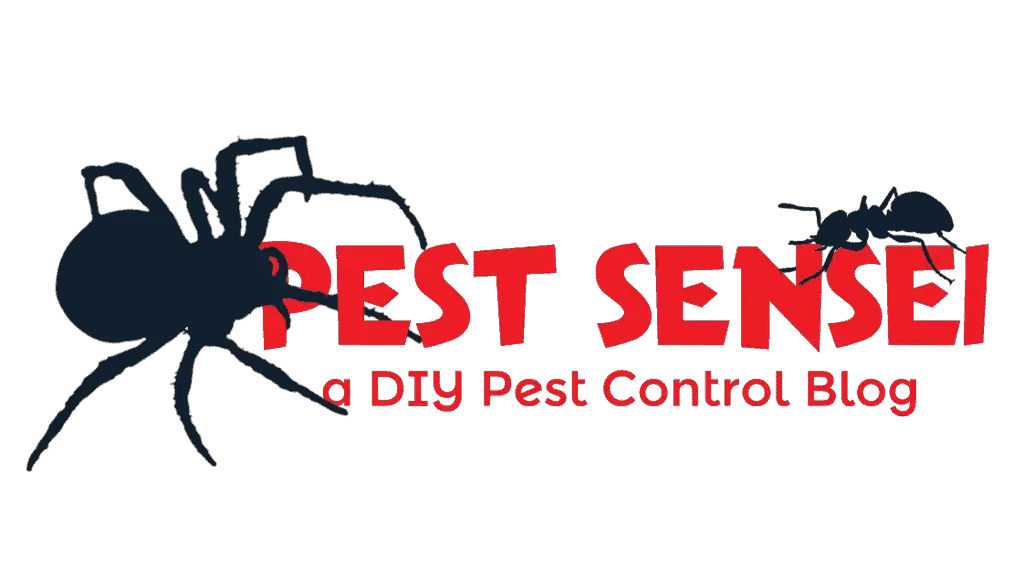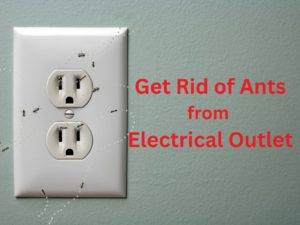Ants may be small insects, but they can cause significant problems when they infest electrical outlets. If you’ve discovered ants in your electrical outlet, don’t worry! We’ll guide you through safe and effective ways to eliminate them quickly.
Why Ants Are Attracted to Electrical Outlets
There are several reasons why ants are attracted to electrical outlets. One of the primary reasons is that electrical outlets provide a dry and undisturbed environment that’s perfect for ant nesting.
Additionally, electrical cables emit a small amount of heat, which can further attract ants, particularly during colder weather.
In some instances, ants may simply be passing through the gaps and holes around the electrical outlet, without actually nesting inside.
Regardless of the reasons, it’s crucial to take immediate action to address this issue to prevent any safety hazards.
The Risks of Ant Infestations in Electrical Outlets
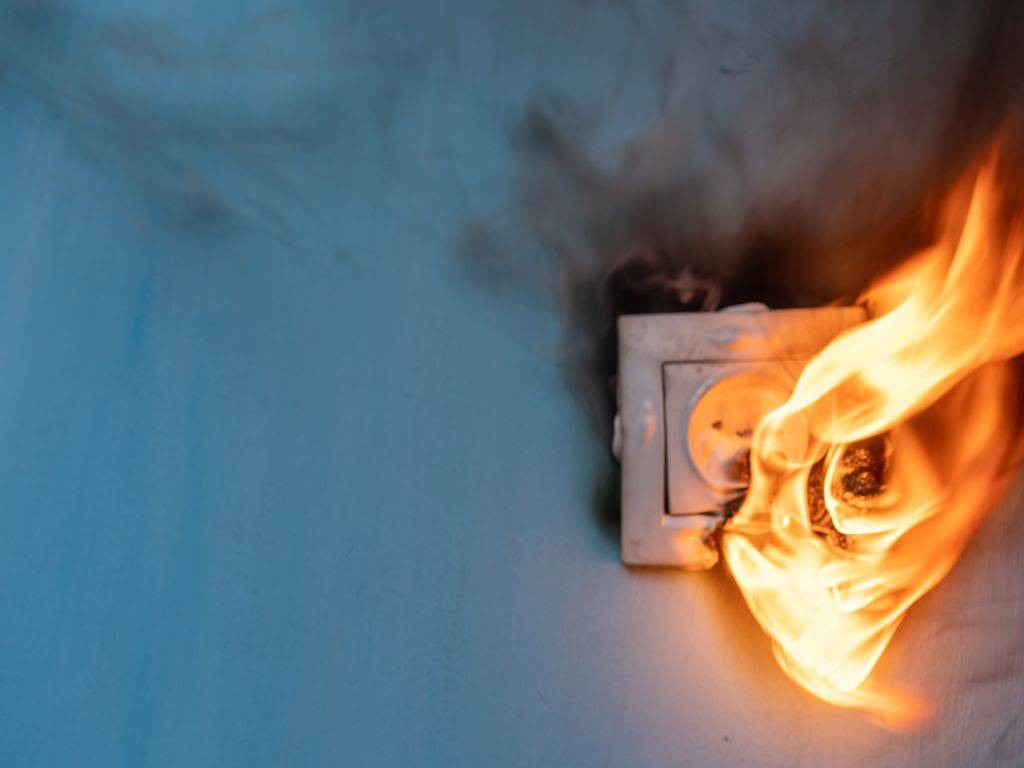
Ants that have nested in electrical outlets can pose significant risks to electrical systems. They can chew through electrical cables, causing shorts and potentially sparking electrical fires.
Interestingly, another contributing factor to electrical shorts and fires is the presence of dead ants. When ants come into contact with electrical cables, they’re electrocuted and release chemical cues that attract other ants. These ants are then electrocuted as well, and the cycle continues. Over time, the buildup of dead ants can cause shorts and other issues.
Moreover, ants can cause problems outside of the electrical outlet itself. As they move through electrical systems, they can damage other components, such as circuit breakers, switches, and sockets. This can result in electrical malfunctions, creating a safety hazard.
Therefore, it’s crucial to address ant infestations in electrical outlets promptly to prevent potential damage to electrical systems and reduce the risk of electrical fires.
How to Identify Ant Infestation in Electrical Outlet
If you notice ants constantly appearing around your electrical outlet or ant trails leading to it, it’s possible that they’ve nested inside. Even if they’re just passing through the outlet, there’s a risk of damage to the electrical components and the possibility of shorts and fire.
Another sign of infestation is the presence of unknown debris that continues to accumulate around the outlet. The debris reappears no matter how many times you clear it. That is the waste dumped by the ants, and it shows that the ants are nesting nearby, probably inside the electrical outlet.
If you suspect that you have an ant infestation in your power outlet, it is important to take action quickly to prevent further damage.
How to Deal with Ants in Electrical Outlets
The most effective way to deal with ants in electrical outlets is by using ant bait. Directly spraying the nest is risky and may cause more harm than good. Once the infestation is eliminated, it’s important to check the condition of the affected outlet and repair any damage if needed.
Using Ant Bait
Ant baits are by far the best solution for ant issues, as they are safe, efficient, and effective. They are the only method that can eliminate an entire ant colony without the need to locate the nest. This is due to the food-sharing behavior of ants.
Baits are efficient because it only takes a small amount to eliminate the entire colony. Additionally, they are safe because the application is localized to where the ants are spotted, with a low risk of exposure to non-targets such as infants, pets, and bees. Once the infestation is resolved, you can simply wipe off any remaining baits.
Depending on the developmental stage of the ant colony, they may prefer either protein or sugar-based baits. You can determine their preference by placing peanut butter and fruit jam along the ant trail. If the ants aggregate around the peanut butter, they prefer protein-based food, and if they flock to the fruit jam, they prefer sugar-based food.
After confirming the preference of the ants, you can use the appropriate bait to tackle the ant problem.
When using ant bait, it is essential not to spray anything. Spraying repellents will make the bait unattractive to the ants, and using other ant-killing pesticides defeats the purpose of baiting.
DIY Boric Acid Ant Bait

For those who want to avoid using “chemicals”, boric acid baiting is something to consider (anything containing atoms or molecules are chemicals though).
To prepare the bait, add 1-2 g of boric acid and either 20 g table sugar or peanut butter into 100 mL of warm water. Stir until everything is dissolved, and the bait is ready to use.
Make sure you do not add too much boric acid. Otherwise, the ants will avoid consuming the bait. Moreover, if the boric acid concentration is too high, the ants will be killed before they can spread the boric acid all over their colony through food sharing.
Put a few drops of the bait next to the ant trails. If everything goes right, the ants will gather around the bait, and feed on it.
Depending on the size of the ant colony, repeated baitings are required to achieve total elimination when using boric acid bait.
Check out my full guide on boric acid pest control.
Terro Liquid Ant Baits
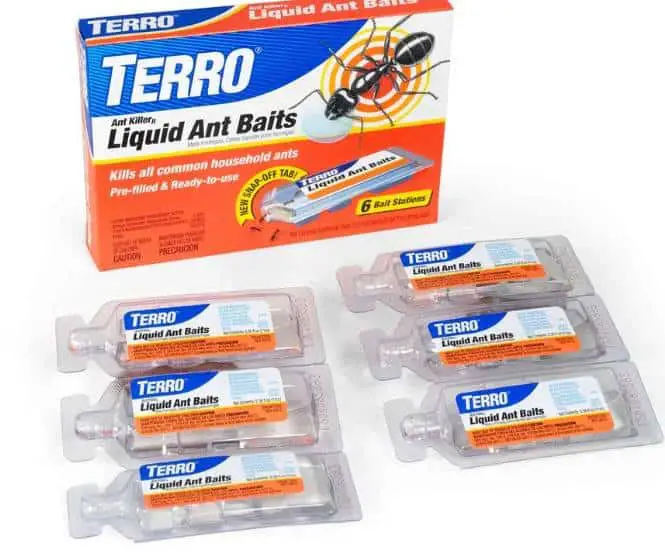
Terro ant bait is a sugar-based ant bait containing borax, a compound commonly used in household cleaning products. It comes in a ready-to-use package, and saves you the hassle of preparing your own DIY bait. Similar to boric acid bait, repeated application is required to eliminate the colony.
Advance 375A Select Granular Ant Bait
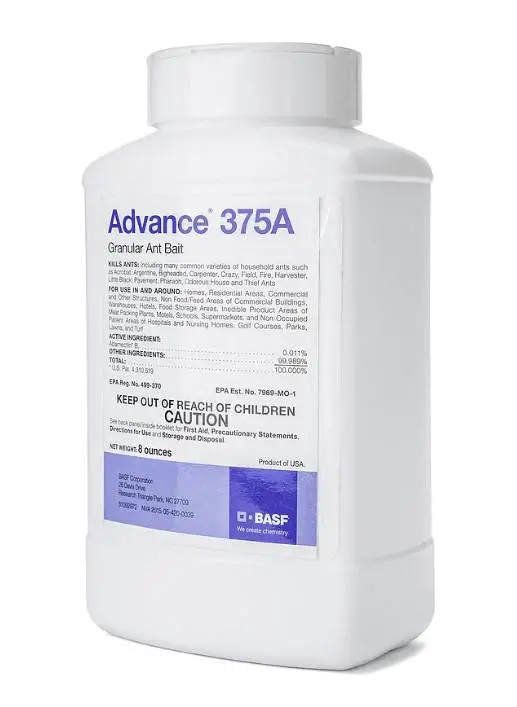
Advance 375A Select is a protein-based ant bait. It contains naturally-occuring abamectin that can slowly kill the ants, and eliminate the ant colony.
Spraying the Ant Nest in Electrical Outlet
If you are certain that the ants are nesting inside the electrical outlet, you can treat the nest by direct spraying after cutting off the electrical supply. Make sure you know what you are doing, and do this at your own risk! You should consult an electrician before doing this.
Nature-Cide
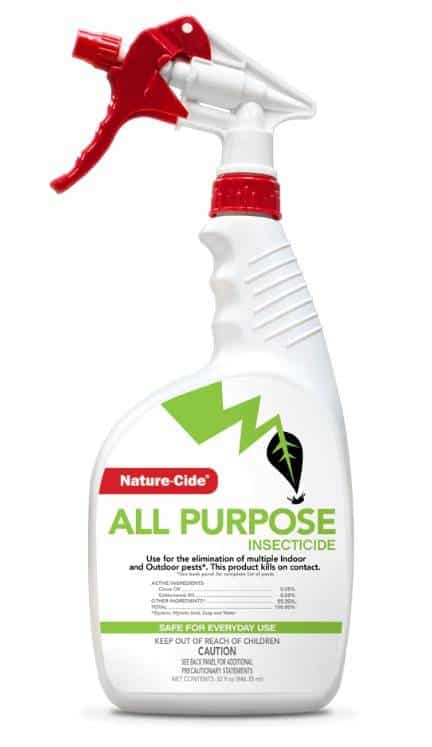
Nature-Cide is a great choice for health-conscious individuals who prioritize natural and organic products. It contains a blend of natural ingredients – clove oil and cottonseed oil, which can kill ants upon contact. Spray this onto the ant nest directly to wipe out the colony.
Dubious Advice: What Not to Do When Dealing with Ants
Dealing with an ant infestation can be overwhelming, especially when there is no shortage of dubious advice from so-called gurus. In this article, we will debunk some common practices that do not work and may even make the problem worse.
Think Twice before Using Repellents
Using repellents to control ant infestation may not be as effective as you think. In fact, it can cause certain ant species to split their colony into multiple ones as a defensive measure. This behavior, known as budding, makes it harder to eliminate the ant problem.
While there are repellent-containing products available in the market, it is best to avoid them unless you are applying the product directly onto the ant nest to kill the whole colony. This includes essential oils and products such as Nature-Cide.
Ant Dust is Not Effective
Some gurus suggest using ant dust along the ant trail to kill the foraging ants. However, this method does nothing to the colony itself. The queen ant will continue laying hundreds of eggs daily to replace the dead ants, rendering the ant dust ineffective.
Don’t Use Vinegar
Vinegar is often touted as an effective repellent or killer of ants. However, it may only repel or kill the foraging ants, leaving the colony intact. Worse, it may cause the ants to split their colony into multiple ones due to the repellency effect.
Preventing Future Infestation
After eliminating the ants, it’s essential to seal all gaps around the electrical outlet to prevent future infestations. You can use any wall-repair putty for this purpose. Some people suggest using repellents to keep ants away, but this is unnecessary and potentially risky. Many repellents do not last long enough and may even cause colony budding.
Final Words
Ensuring your safety is your top priority when dealing with ants in an electrical outlet. If you are not confident in handling the situation, it’s best to seek help from professionals. You can get a non-obligatory quote from your local providers on Networx.
